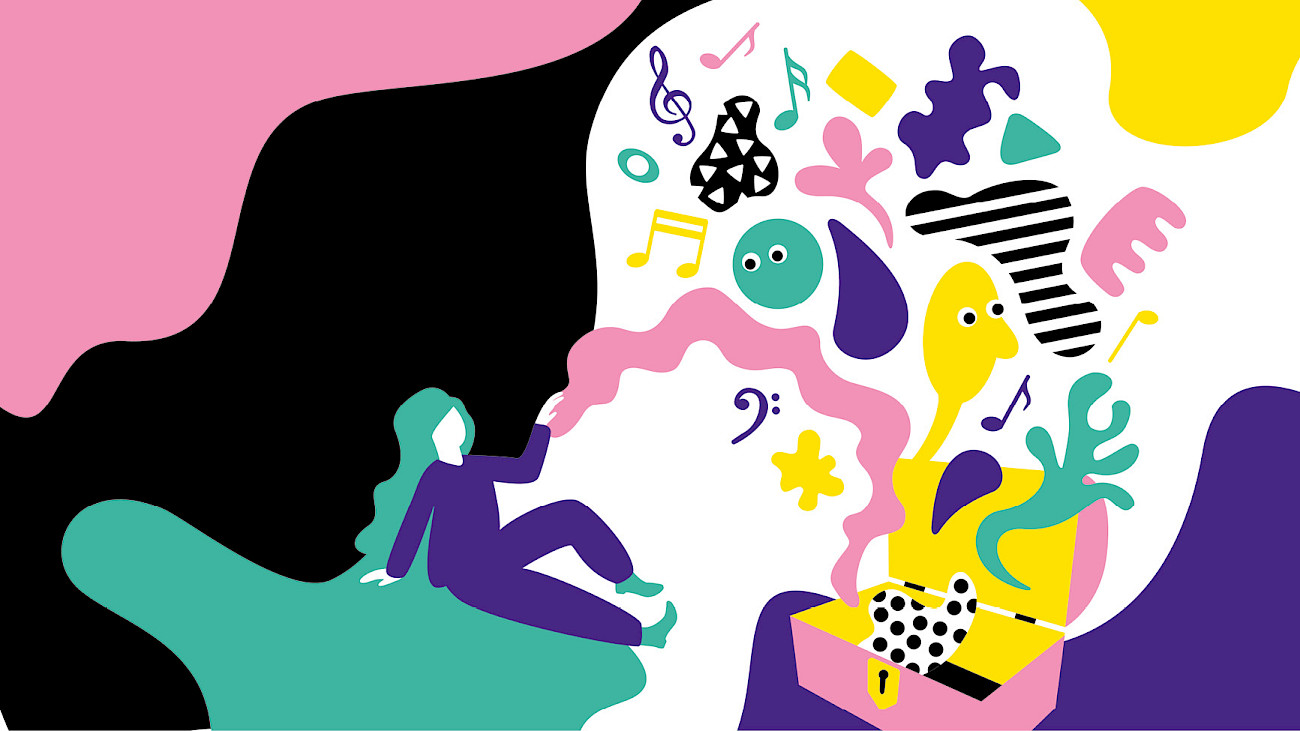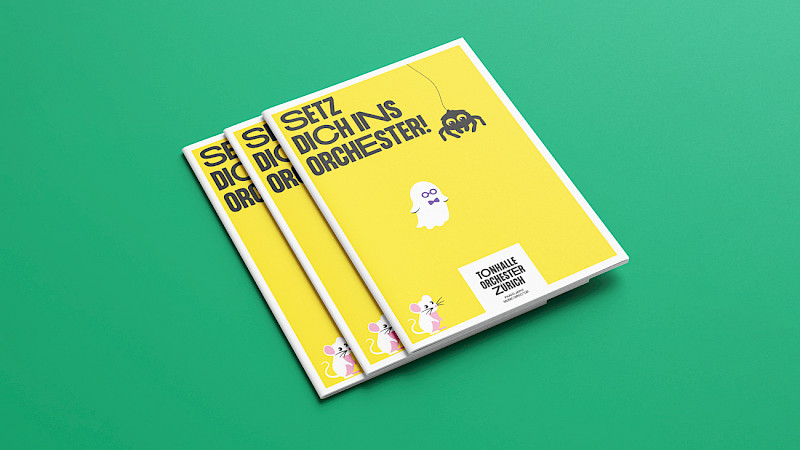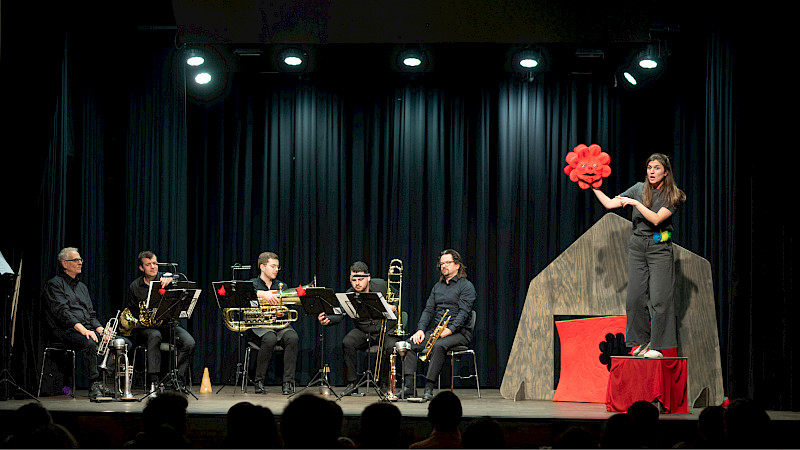
"Children can understand much more than adults"
The composer Rodolphe Schacher on our new family project.
Rodolphe Schacher, you have already composed a number of works for children - what is different from "adult" works?
You can do anything! That's why I think it's so nice to compose for children. They can understand and accept much more than adults, they have no expectations of the music. If something sounds modern, it's simply different for them, but I've never experienced any negative reactions. The conflict between contemporary and tonal music is simply not an issue for them. So everything can take place in the same piece.
What was your favourite music as a child?
Mozart's "Little Night Music", that was the perfect music for me. I also mainly listened to classical and baroque works. There were far fewer performances and pieces for children back then than there are today.
Now you have created a new series of works yourself with the music for "Kunterwunderbunt". How did the project come about?
It all started with the text by Nelly Danker, who also directed the play. In it, the girl Yvi discovers the world of colours - a simple idea, but one that is told in four really beautiful stories. You can imagine something at every moment, and my aim was to translate these ideas into music. In total, there are over forty pieces in the four parts, some of which are linked by leitmotifs; the music should be logical. But you don't necessarily have to realise that. Just as the stories of the individual parts can stand on their own, it doesn't matter if you miss a part of the music.
What guidelines did you have for the cast?
The only thing that was clear was that the first three parts - which will be performed in community centres in the city of Zurich - should be chamber music. That was new for me, as my previous children's pieces were mostly written for orchestra. I then discussed the specific instrumentation with Yvonne Gisler from the music education department. We came up with very different ensembles: flute, bassoon and harp in the first part, a brass quintet in the second, and a violin, cello, clarinet and marimba or vibraphone in the third. When it comes to colours, you also need many timbres.
What colour did you start composing with?
With grey! I actually started with the first number of the first story. Yvi is bored in this scene, and the music should sound correspondingly boring. That was a fun task, because normally you want to compose exciting music. And it was a good start.
And what's the exit like? The finale of the series will take place with a larger ensemble in the Kleine Tonhalle.
At the moment I'm still finalising the score for this last part. I'm still enjoying the work enormously: because it's such a beautiful project. And because I've been dreaming of composing something for this orchestra again since the Elements cycle with Linard Bardill 15 years ago.
Rodolphe Schacher
The French-Swiss composer and pianist has made a name for himself in particular with his symphonic works, film scores and works for children. His relationship with the Tonhalle- Orchester Zürich goes back to 2005, when chief conductor David Zinman awarded him a scholarship that led to an invitation to the Aspen Festival. in 2008/09, he created the element cycle "Fire, Earth, Water, Air" with Linard Bardill, which was performed in four family concerts and the final concert "The Rose of Jericho" at the Tonhalle Zurich. He is now continuing his collaboration with the orchestra in the "Kunterwunderbunt" cycle.





